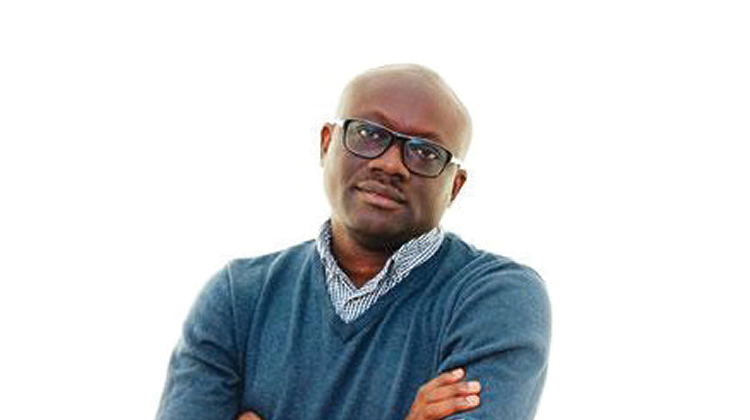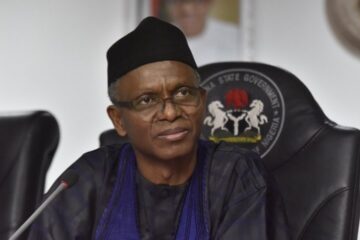[OPINION] Common errors about Nigeria (III)

Simon Kolawole
As a student of development, I have patiently studied the trajectories of several nations — Korea, Singapore, Taiwan, the US, the UK, Norway and some developing countries — and I have a confession to make this morning: it is only in Nigeria that people blame their underdevelopment on the constitution. I admit that we are special, so special our own case must always be different. That is why we have an emotional attachment to an imaginary “perfect constitution” as the basis for development. The constitution is expected to eradicate poverty and disease and elevate us to the comity of prosperous nations. According to us, we will never rise because of our “evil” constitution.
In the first instalment of this series on five common errors about Nigeria, I argued that Nigeria is not a rich country, no matter how many times we make that audacious claim. We are potentially rich for sure, but we are not generating enough income to meet the critical needs of 200 million people even if no kobo is stolen or wasted from the public purse. In the second instalment, I sought to dismiss the age-old notion that all of Nigeria’s problems should be blamed on the president. He plays a key role in national development, but we run a federal democracy, not a unitary or military system. Therefore, all the governors and council chairpersons must be on top form for us to make progress.
In this instalment — the third in the series — I want to touch on an issue that has become highly emotional for some sections of the country: that our slow progress, or lack of progress, is because of the 1999 Constitution. For Nigeria to develop, it is argued, “we the people” must write a new constitution. Opposition to the document is based on several arguments. Some say the constitution was written by the military and therefore lacks legitimacy. Some say it is faulty because it does not guarantee “true federalism” — whatever that means. Some say it is because of the lengthy exclusive legislative list which bestows too much power on the centre to the detriment of the states.
I need to narrow down this discussion so as to keep focus. I do not intend to discuss fiscal federalism, true federalism, resource control, state police, regionalism, confederalism and other isms and schisms. We can always debate those ones in detail from time to time. Rather, I intend to focus on the popular claim that because the exclusive list is very long, the federal government is too powerful and the states have consequently been constrained from embarking on initiatives that will allow them to grow. It is often passionately argued that most items on the exclusive list should be transferred to the concurrent list so that the states can be empowered to deliver the goods.
Before I proceed, I want to quickly quote Aare Afe Babalola, one of our foremost lawyers, who recently played host to Mr Peter Obi, the presidential candidate of the Labour Party. He attacked the 1999 Constitution and asked for a new one. “The new constitution should provide for stringent conditions in respect of age, academic qualifications, character and personality, as well as family background of candidates, especially for the presidency and the National Assembly,” he said. “Unless a new constitution similar to those of 1960 and 1963 Constitutions, with necessary amendments, is put in place, none of the aspirants, and indeed no angel, can save Nigeria from total collapse.”
Babalola is 92 and has seen Nigeria inside out, so you cannot ignore his opinion. Many young people may take their cue from him and insist that we need a new constitution “to save Nigeria from collapse”. But let me amuse you: in the US, from where we copied our presidential democracy, there are only three criteria for you to become a president: one, you must be at least 35 years of age; two, you must be a natural born citizen; and three, you must have lived in the US for at least 14 years. There is no mention of academic qualifications or family background, yet the US has not collapsed since July 4, 1776. But Nigeria will collapse if we don’t include these criteria in our constitution!
Or should I cite the example of the UK, our colonial masters? They practise parliamentary democracy, so the executive powers lie in the hands of the prime minister. They don’t have a president. They don’t even have a written constitution. They are ruled by acts of parliament and conventions. There is only one requirement for you to be a prime minister: you must be a UK citizen. There is no mention of age or academic qualifications. The king can appoint anyone as prime minister, although the convention is to pick the leader of the party with most seats in parliament and that leader is usually a member of parliament. Obviously, a criminal cannot be prime minister.
However, because we think we are so special in Nigeria and we are not like any other country in the world, we need to write everything into the constitution. Otherwise, the country will not develop. The country “will collapse”. We need to write how many times presidential candidates can belch. We need to prescribe the toothpaste they should use. Many developing countries are focusing on how to improve the productive capacities of their people, how to ramp up the provision of critical infrastructure to push economic development, and how to pull millions of people out of poverty. We are still stuck with the notion that it is constitutions that develop countries. Aren’t we special?
I got into a little argument with a respected newspaper columnist some years ago. He went on and on about how the 1999 Constitution is “tying Yoruba people down” and stalling “our development”. What part of the constitution, I asked, and he replied: “Can you imagine that we cannot build a rail line?” I shook my head as if I agreed with him. He was way older than me, so I needed to handle his ego with caution. But isn’t Lagos state building rail? “Why must we get approval from Abuja?” he retorted. He complained about the exclusive legislative list that restricts jurisdiction on aviation, prisons, banking, oil and gas, creation of councils and telecoms, etc, to the federal government.
Again, I do not want to go deeper into the issues around our peculiar understanding of federalism in Nigeria (remember we are a special people) but I still do not accept that we are in this sorry state because of the exclusive list. Even though railways is not on the list, I am not aware that any state wanted to build a rail and it was stopped. Aviation is on the exclusive list, but states are building airports up and down. Nobody has stopped them. In a federation, certain sectors have to be regulated by the central government, lest there be commotion and chaos. Air transportation is one. Railways is another. But, as we can all see in Nigeria, regulating does not mean exclusive ownership.
I totally agree that some items on the exclusive list should be devolved to the states, but I think we are so used to exaggeration and negative framing that we keep mixing up the issues. Take, for instance, telecoms. It is on the exclusive legislative list, but states are not barred from participating and making money if they so desire. Lagos, Delta and Akwa Ibom states invested millions of dollars in Econet (now Airtel) in 2001 and reaped more millions. Nobody stopped them. They can set up telcos to rival MTN and Globacom if they wish — trust me, there is nothing in this “evil constitution” stopping them. There is no limit to the billions of dollars states can make with good investments.
Ownership of petroleum resources is clearly the most contentious issue in the 1999 Constitution and probably the reason why many people have been groomed to despise it. There has been a campaign for resource control by the oil-producing states to keep the petrodollar revenues. It is argued that we should return to the 1963 Constitution (described by its admirers as the “greatest ever”) so that we can have “resource control” in Nigeria. Actually, mines and minerals, including oilfields, oil mining, geological surveys and natural gas, were under federal jurisdiction in the 1963 Constitution. Don’t believe me: kindly check item no 25 under the exclusive list. It is there in black and white.
Do you know that the 1999 Constitution does not stop any state from incorporating an oil and gas company and operating anywhere in the world and making billions of dollars? In addition to 13 percent derivation, Ministry of Niger Delta, Amnesty Programme, Niger Delta Development Commission (NDDC) and host community funds, the states can make much more money without any constitution amendment. Actually, many already have oil companies: Akwa Ibom has Universal Oil & Gas Ltd, Bayelsa (Bayelsa Oil & Gas Ltd), Delta (Midwestern Oil & Gas Ltd), and Ondo (Owena Oil & Gas Ltd). But we prefer to write a new constitution than probe how well these companies are doing.
We want to write a new constitution and return Nigeria to the regional system as it was “in the good old days”, yet there are so many opportunities for regional co-operation to facilitate economic development. In fact, many regions are already into it. You don’t believe me? The south-west states have O’dua Investment Ltd and the DAWN Commission. South-south states have BRACED Commission. There is South East Development Commission (SEDC). The 19 northern states have the New Nigeria Development Company (NNDC). Rather than find out how well these bodies are marshalling and implementing regional development agenda, we want a magical constitution.
To put it in Yoro-English, I would say we still don’t know what is “doing” us in this country. We point to the constitution, the rules, and everything else as our problem — but often conveniently leave out the pivotal role of good governance in development. A “bad” constitution in the hands of competent, patriotic and visionary leaders will produce excellent development outcomes compared to a “perfect” constitution in the hands of buccaneers and misfits. I do hope that someday, the scales will fall off our eyes. For too long, we have been misled by some eloquent opinion shapers who always pull the wool over our eyes by playing on our emotions. Can we continue like this?
Culled from TheCable











